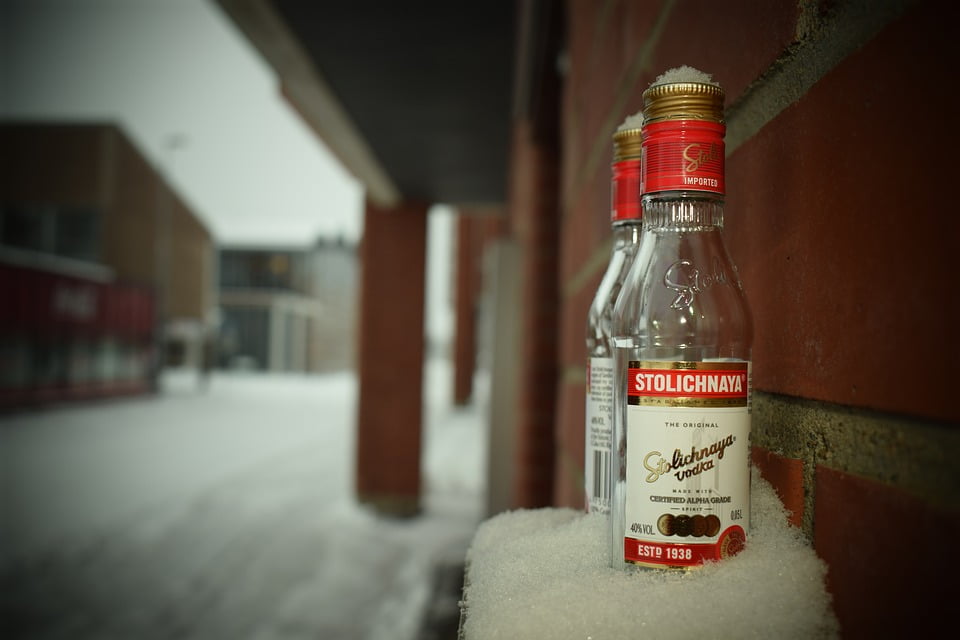It is widely believed that alcohol helps a frozen person to warm up, and is also able to prevent hypothermia in a person who took it in advance. We decided to check whether this has any scientific basis.
A person who drinks alcohol actually feels that he is warming up. Drinks containing it called strong, and strong drinks are often describe in fiction as scalding. In Ozhegov’s explanatory dictionary even There is the word “sugrev”, which means “to drink a little to warm up.” During the Great Patriotic War, Soviet soldiers relied the so-called “People's Commissar 100 grams”. Their opponents also believed in the warming effect of alcohol - during the autumn-winter period of the Battle of Stalingrad, German soldiers centrally received schnapps. Historians calculated, that “in just one month of 1942, during the battles of Stalingrad, the Transcaucasian Front drank 1.2 million liters of vodka, the Western Front - about 1 million liters, the Karelian Front - 364,000 liters, and the Stalingrad Front - 407,000 liters.” Participants in the hostilities of those years writethat it was alcohol that saved their lives in severe frosts or severe hypothermia.
It is immediately worth noting that the use of ethanol counts the most common associated cause of death from hypothermia in urban environments. Scientists also reportthat alcoholics in general have a higher risk of accidental hypothermia. Rescuers agree with them - according to data Ministry of Emergency Situations in the Arkhangelsk Region, half of the people who froze to death were intoxicated. At the same time, subjective observations tell us that after taking a certain dose of alcohol, for some reason it becomes warmer. However, in this case, the sensations let us down - the effect of heat is felt due to the fact that blood rushes to the skin, while it leaves the rest of the body, including internal organs.
Scientists have concluded that the effect of alcohol on thermoregulation (i.e. ability Our body maintains a certain body temperature) depends mainly on the amount of drink. Research show that low doses of alcohol do not affect significantly on the ability to thermoregulate, while at higher blood alcohol levels the incidence of thermoregulatory disturbances increases. Group of British scientists didn't find it differences between the cooling rate in volunteers, some of whom drank a little alcohol (0.34 g of ethanol per 1 kg of body weight), while others drank water. Another group of researchers raised alcohol dosage up to 0.79 g per 1 kg of body weight and already received different results. The cooling rate of the body of those who drank alcohol increased significantly, the process of warming up at room temperature was slower, while the subjects subjectively assessed the ambient temperature as warmer and shivered less compared to the control group.
Animal studies have made it possible to better understand the mechanisms of thermoregulation and the effects of more significant doses of alcohol on them. On monkeys experienced dose of 0.5 and 1 g per 1 kg, all animals showed a significant drop in thermoregulation compared to the control group. Individuals older than nine years were most susceptible to cooling at average The animal's lifespan is 10–12 years. Rats "got it" an even larger dose of alcohol - from 2 to 6 g per 1 kg. Experimental animals showed even less ability to maintain body temperature, even at room temperature. These experiments demonstrated, among other things, that the relationship between alcohol dosage and subsequent effects on thermoregulation is not a linear pattern, but rather operates as a “threshold phenomenon”: low and moderate doses of alcohol do not affect thermoregulation when exposed to cold, but at high or extreme doses, thermoregulation is significantly altered.

All scientists used a parameter that is not very clear for calculations - grams of ethanol per 1 kg of the subject’s weight. Let's try to translate scientific data into understandable measurements. Average human weight - 62 kg. According to methodology WHO, 12.6 g of ethanol is 40 g of drink with a strength of 40%. Thus, only a dose equal to 66 g of 40% alcohol did not affect thermoregulation. Anything exceeding it has already had a negative impact on heat loss by the body. That is, the front-line 100 g already contributed to the hypothermia of the soldiers. Moreover, even a dose of 66 g did not demonstrate any advantages in hypothermia and subsequent warming compared to water, that is, 66 g of vodka only does not worsen the situation, but does not improve it, and a large dose is already harmful.
A decrease in the ability to thermoregulate after drinking alcohol may be due to the effect of alcohol on the concentration of glucose in the blood plasma. It has been demonstrated that alcohol intake suppresses glucose production in the liver and leads To hypoglycemia. At hypoglycemia sweating increases, peripheral vessels relax and their lumen expands, and cold shivering decreases. All this accelerates heat transfer even more and makes it difficult to warm up even when exposed to heat. It is also worth noting that alcohol consumption leads to reduce the criticality of perception. Along with drowsiness, accompanying hypothermia, this can lead to the fact that someone drinking in the cold simply cannot adequately assess the freezing limit.
Thus, neither alcohol taken in advance, nor drinking alcoholic beverages in cold weather, nor “one hundred grams” offered to an already frozen person will help protect the body from the cold and will not improve its thermoregulation. At the same time, they can create a dangerous illusion of warmth, which will lead to even worse consequences than freezing itself.

Not true
Read on the topic:
- Is it true that hot drinks are healthier than cold drinks in hot weather?
- Is it true that alcohol kills brain cells?
If you find a spelling or grammatical error, please let us know by highlighting the error text and clicking Ctrl+Enter.






